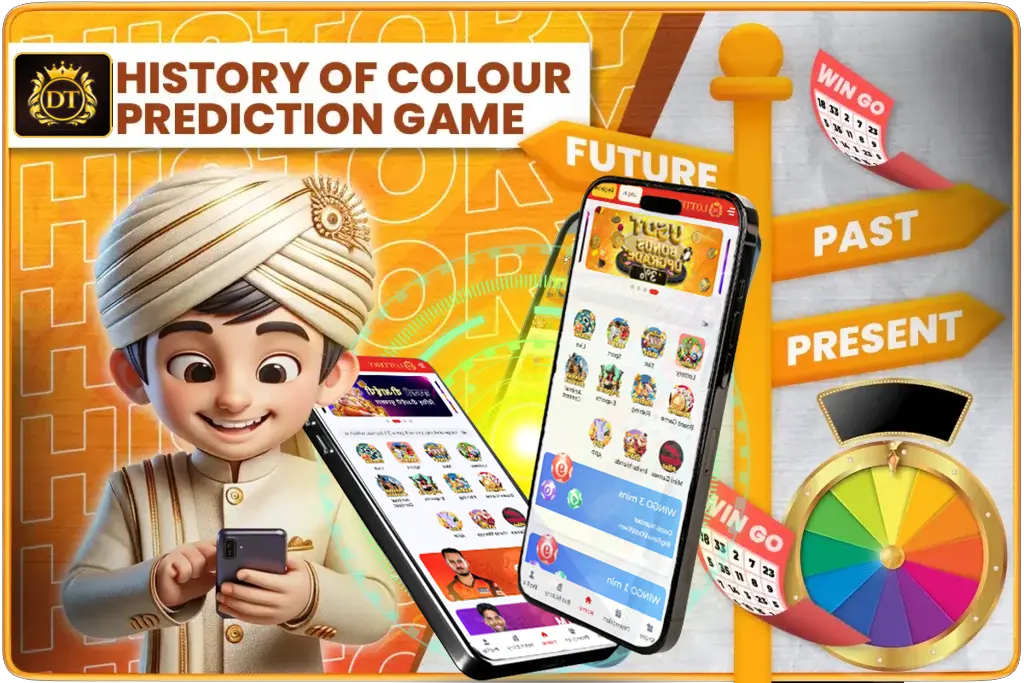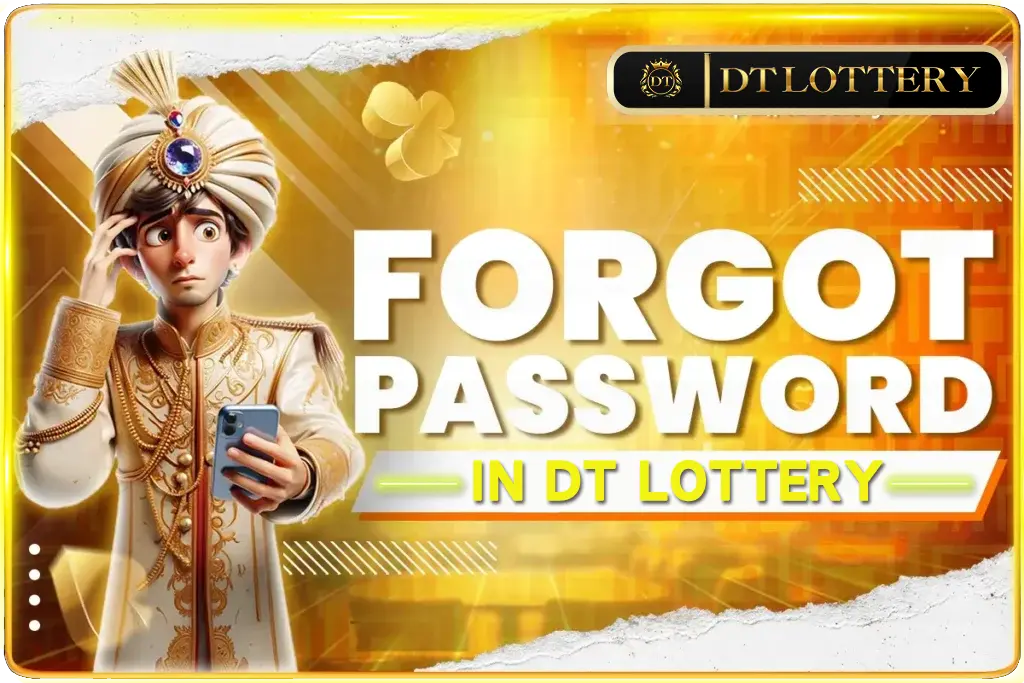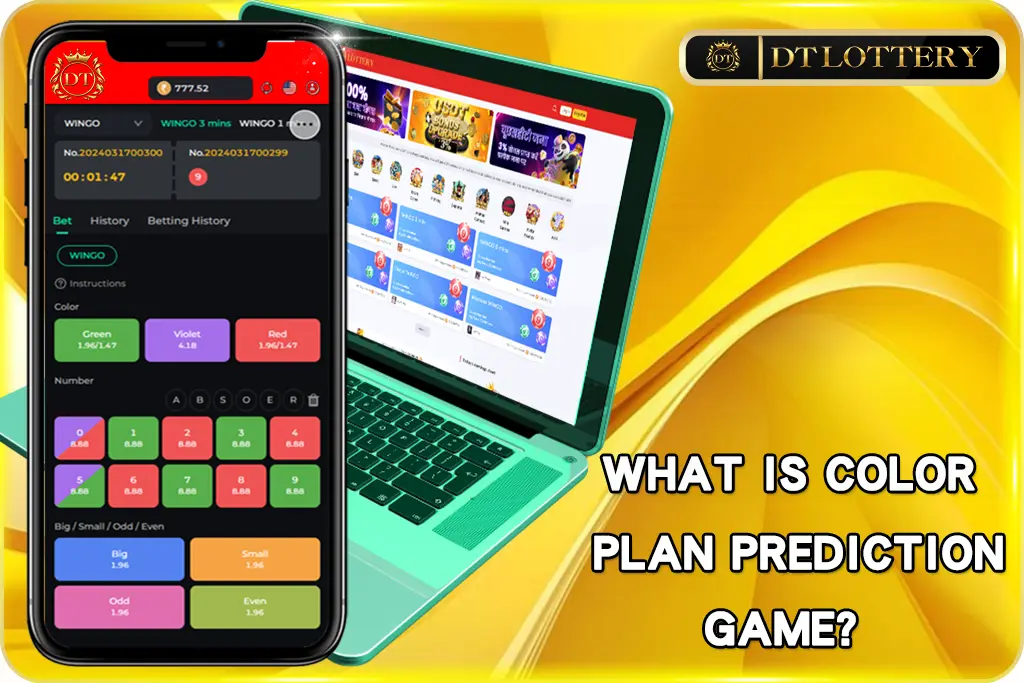The History of Colour Prediction Games | India Games
Colour prediction games are really popular online. These games are easy and fun. You guess what colour will show up next, usually on a spinning wheel. People like them because they’re simple and exciting. In our DT Lottery, we make these games really fun to play. As we go through the history of colour prediction games, you’ll see why so many people enjoy them.

Historical Roots and Early Forms | India Games
Colour prediction India Games have been around for a really long time, way before we had the internet. People in different parts of the world used to play these India Games in simple ways, like guessing which coloured stone would be thrown next or picking a coloured stick from a bunch. Every place had its own way of playing these India Games.
In some cultures, these India Games were just for fun at parties or get-togethers. In others, they were more serious and used in special ceremonies or traditions. They were not only about guessing right but sometimes were thought to tell the future or bring luck.
As years passed, these India Games started to change. They became more about having fun and enjoying the game. This change is a big part of the history of colour prediction India Games. Now, we have modern versions like the ones from DT Lottery. These new India Games are still about guessing colours, but they’re mainly about having a good time.
Understanding the Game Mechanics of Colour Prediction India Games
Colour prediction India Games are all about guessing the right colour, but how they are played can vary a lot. In the simplest form, like in our DT Lottery India Games, you might see a wheel that spins and stops on a colour. Your job is just to guess which colour it will land on before it stops.
Online colour prediction India Games often use this wheel format, but there are other ways they can be set up too. Some use cards with different colours, and you have to guess which colour will be picked next. Other India Games might have a grid of colours, and you choose one, hoping it’s the winning colour.
Traditional colour prediction India Games, the ones played before the internet, were a bit different. They might have used coloured stones or pieces of paper. People would gather around, make their guesses, and then see which colour was picked out of a bag or box.
The rules and how you play can change depending on the game. Some India Games are really quick, where you guess, see the result, and then play again. Others might have more steps or different ways to win.
No matter the format, the main thing in these India Games is trying to guess the right colour. It’s a mix of luck and sometimes a bit of strategy, making it fun and exciting. As we’ve seen in the history of colour prediction India Games, these simple yet engaging mechanics are what make them so appealing.
Psychological Appeal: Why We Love Colour Prediction India Games
Ever wondered why people love playing colour prediction India Games like the ones at DT Lottery? It’s not just about the game itself; it’s also about how colours make us feel. Colours can make us happy, excited, or relaxed, and that’s why these India Games, with their deep roots in the history of colour prediction India Games, are so enjoyable.
When you play, the colours you see set the mood. Bright colours make it exciting, while softer colours make it calming. Game designers think carefully about this to make the game enjoyable.
The thrill of guessing and waiting is also a big part of the fun. It’s like getting a surprise or winning a prize.
These India Games let us test our luck, even though it’s mostly chance. This mix of colours, excitement, and luck is why so many people find them irresistible.

The Shift to Online Colour Prediction India India Games
Let’s talk about how colour prediction India Games, rooted in the history of colour prediction India Games, moved to the digital world. They used to be played in person, often with physical objects like coloured stones. But then they went online.
This shift to digital platforms made these India Games even more popular. The internet allowed people to play from home or on their phones, making it super convenient.
Technology played a big role. You could spin a wheel or pick a card, just like in traditional India Games, but now it happened online. This added more variety and excitement.
The Rules and Ethics of Colour Prediction India Games
Now, as we continue our exploration of the history of colour prediction India Games, let’s talk about the rules and doing the right thing. These India Games have different rules in different places.
In some areas, they’re legal and just for fun. But in others, there might be rules against them. It’s important to know the rules where you are and play the right way.
Speaking of doing the right thing, there’s an ethical side to these India Games too. It’s important to play for fun and not get too serious. Some people might take it too far, and that can cause problems. Being responsible while playing is important to make sure everyone has a good time.
Cultural Impact Across the Globe | India India Games
Colour prediction India Games have spread worldwide, and each culture has put its twist on them. Let’s see how different countries have embraced these India Games, keeping in line with the history of colour prediction India Games.
- India: Color prediction India Games are a hit in India, known as “colour guessing” India Games, with lively designs.
- China: China has its own “lucky colour India Games,” often mixing in traditional symbols.
- Africa: Some African countries enjoy these India Games as simple and fun pastimes at local markets and gatherings.
- South America: Colour prediction India Games are gaining popularity in South America as quick and exciting daily diversions.
Examples of Unique Regional Variations | India Games
While the core idea remains the same, different regions have added their twists to color prediction India Games.
- Nigeria: In Nigeria, India Games might involve guessing the colour of traditional attire or fabrics.
- Japan: Japanese versions often include seasonal themes, like predicting cherry blossom or autumn leaf colors.
- Brazil: Brazilian India Games may tie into Carnival traditions, asking players to guess costume or float colors.
These regional adaptations show how colour prediction India Games, rooted in their history, have become part of diverse cultures worldwide.
The Future of Color Prediction Gaming
Now, let’s look ahead to what the future holds for color prediction India Games, considering their historical roots.
- Trends and Predictions: Color prediction India Games are likely to continue their popularity as people seek simple and enjoyable pastimes. Anticipate an increasing interest in the future of these India Games.
- Technological Innovations: With advancements in technology, these India Games could become even more accessible and engaging. Expect innovations that make playing on mobile devices smoother and more exciting.
- Market Growth: The market for color prediction India Games is expected to expand, offering more choices and experiences for players worldwide. As the industry grows, opportunities for unique variations and themes will arise.
Concluding Thoughts
In summary, colour prediction India Games have a long history, from traditional practices to today’s online fun. They’re simple and enjoyable, appealing to people worldwide. As they keep gaining popularity, remember to play responsibly and embrace the enjoyment they offer.








